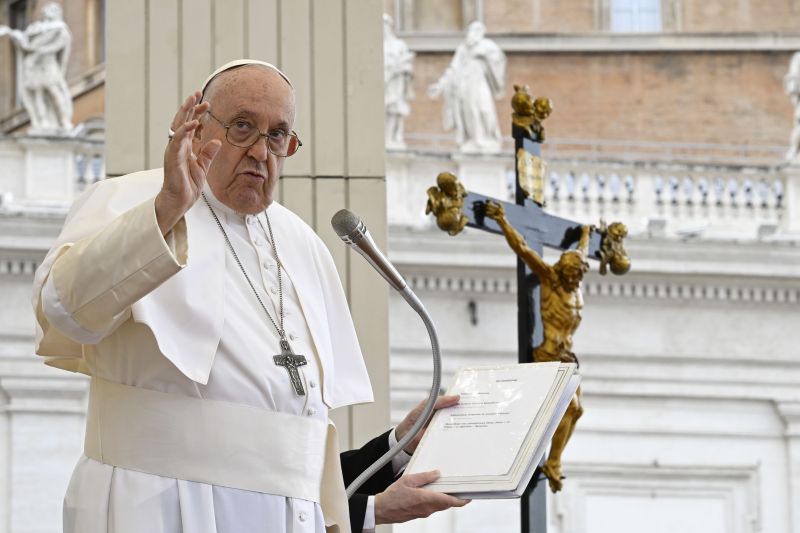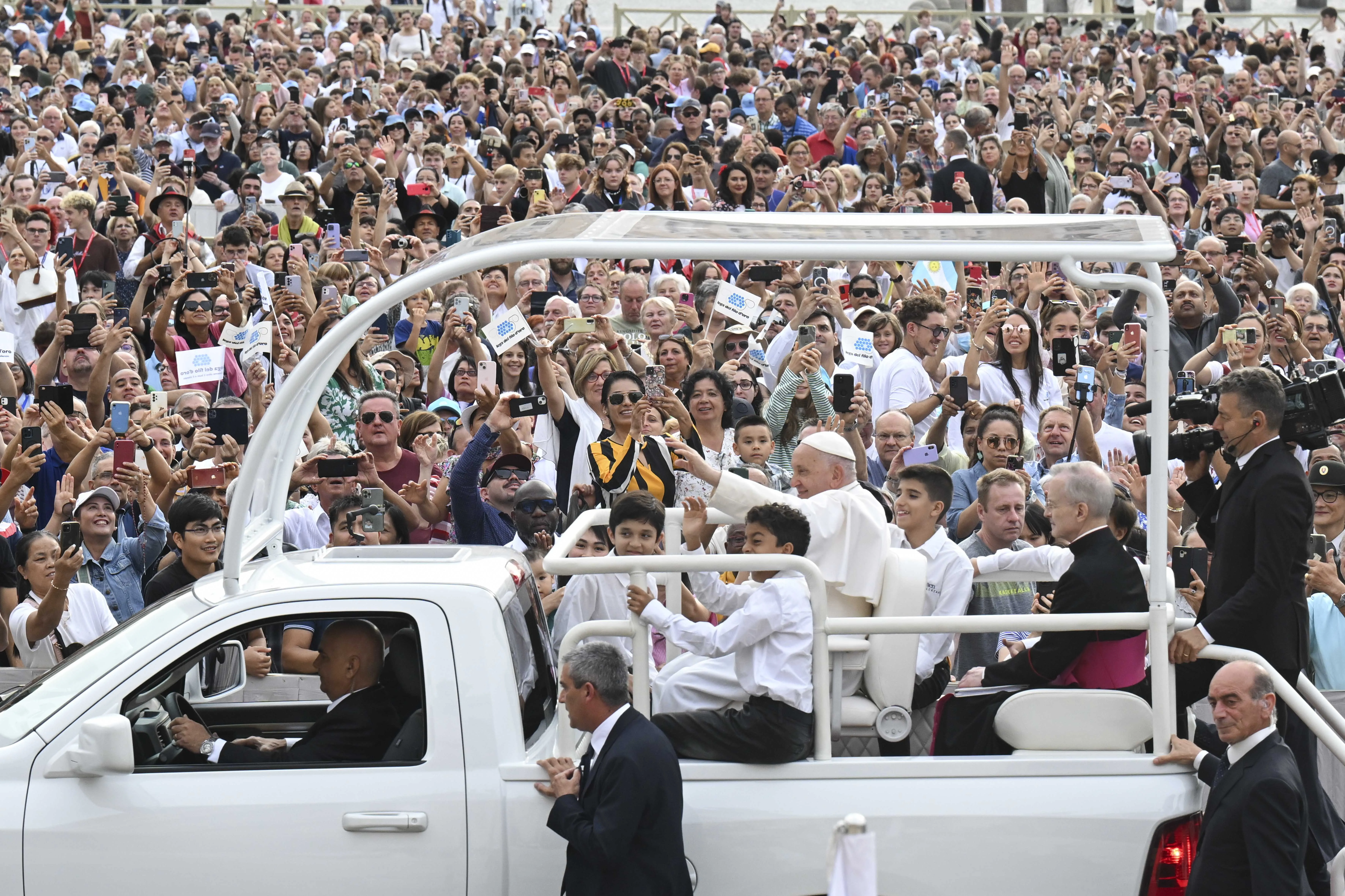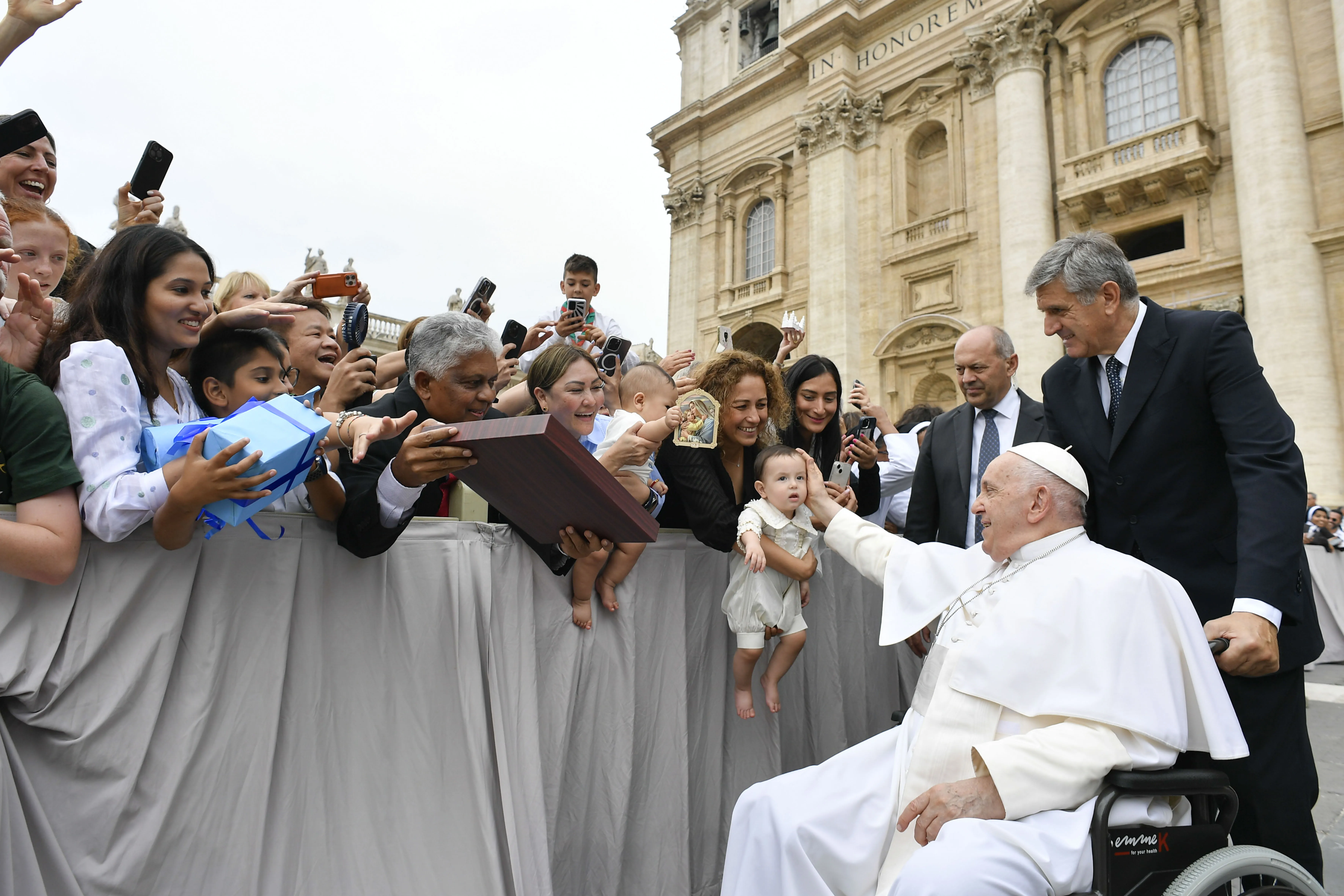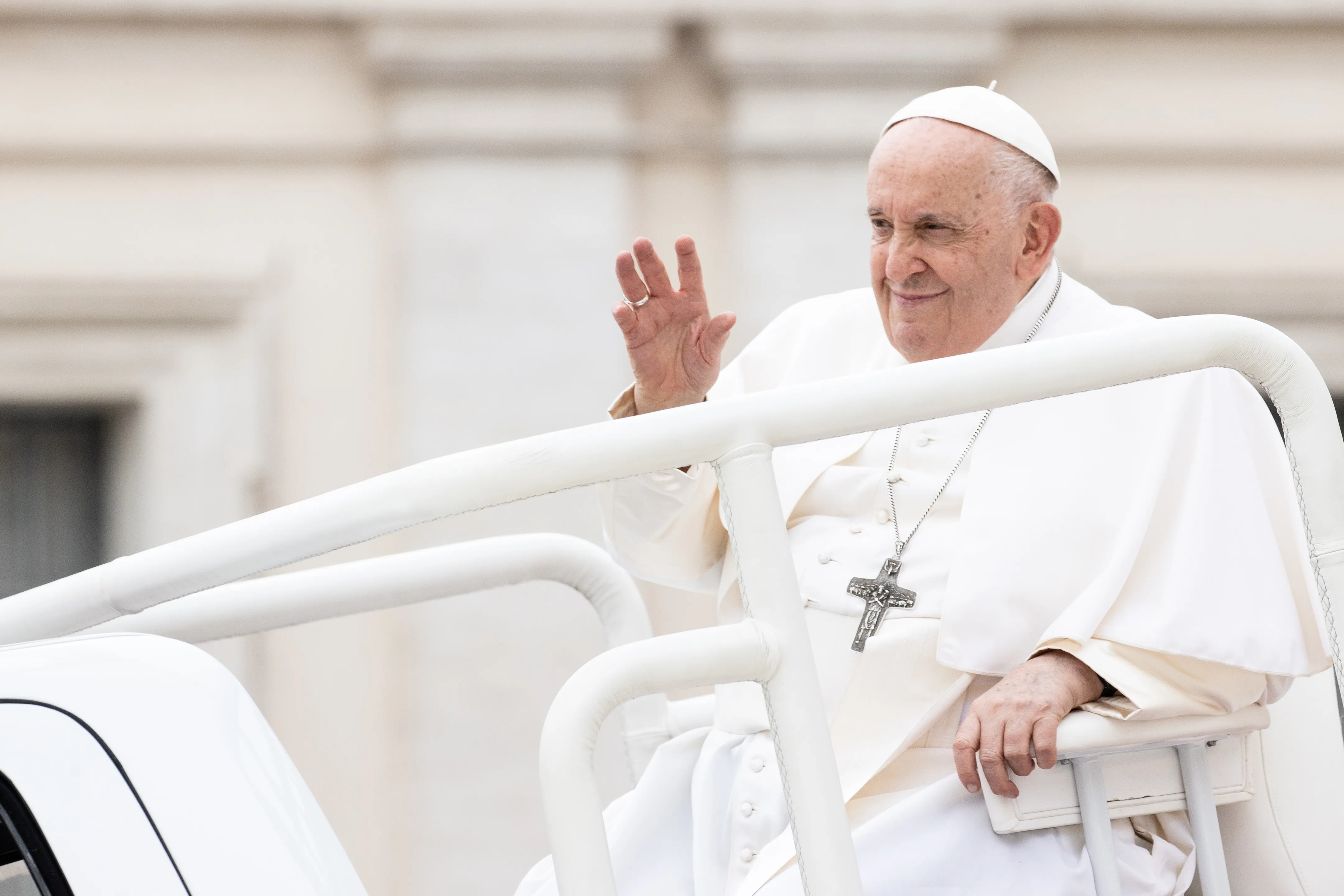
Vatican City, Oct 22, 2020 / 11:22 am (CNA).- The director of a new documentary about Pope Francis received an Italian film award in a ceremony in the Vatican Gardens on Thursday, amid international controversy over his documentary on the life and ministry of Pope Francis.
Filmmaker Evgeny Afineevsky, the director of “Francesco,” was presented with the Kinéo Movie for Humanity Award Oct. 22.
Now in its 18th year, the award is given to those who promote social, humanitarian, and environmental issues in cinema.
Accepting the award, Afineevsky said “I’m so proud that finally ‘Francesco’ is on its way to the world to change hearts and minds.”
“I’m happy that I can bring the voices of the Rohingya refugees, refugees from Syria, voices of victims of sexual abuse, voices from different points and from different corners of the world. Something that Pope Francis really cares [about] and something that is really deeply in my heart,” he stated.
Afineevsky said that, while the pope cannot bring attention to those issues through papal travel at the moment, due to COVID-19, he was “so proud that today the movie can continue this mission.”
The Vatican press office has not given any public statement on the film, which made international headlines on Wednesday for including a line from Pope Francis in a video interview calling for the passage of civil union laws for same-sex couples.
Francis’ statement seems to depart from the position of the Vatican’s doctrinal office and the pope’s predecessors on the issue.
Vatican officials were present at the award ceremony, including Paolo Ruffini, prefect of the communications dicastery, and dicastery secretary Msgr. Lucio Adrian Ruiz.
The officials were not available for questions after the award was presented.
Rosetta Sannelli, the award’s creator, said in a press release that “every trip of Pope Francis to various parts of the world is documented in Afineevsky’s work by images and news footage, and reveals itself as an authentic glimpse into the events of our time, a historical work in all respects.”
The Kinéo movie prizes are usually awarded at a ceremony in Venice, but Sannelli told EWTN News the Vatican was “the right place” to hold the ceremony recognizing “Francesco,” because “there is the spirituality of the place, of the location that you cannot find anywhere [else].”
She said that she chose the documentary after seeing a lot of submissions, calling it “the sum of humanity in a movie.”
“There is the pope… There is a person who fights against the problems and differences and tragedies of our times,” she continued. “I think that it’s a movie to open our look on the world, not from a Catholic point of view, but from a real point of view. There is a religious, spiritual base, but then you work on the base and you go into real themes of our century.”
The pope “faces real problems” of today, she said.
“Francesco” premiered at the Rome Film Festival Oct. 21, and is due to have its North American premiere on Sunday.
The film chronicles the approach of Pope Francis to pressing social issues, and to pastoral ministry among those who live, in the words of the pontiff, “on the existential peripheries.”
If you value the news and views Catholic World Report provides, please consider donating to support our efforts. Your contribution will help us continue to make CWR available to all readers worldwide for free, without a subscription. Thank you for your generosity!
Click here for more information on donating to CWR. Click here to sign up for our newsletter.








The documentary FRANCESCO might call to mind another and earlier post-Vatican II interview…As context, we read in the 2019 Abu Dhabi Declaration: “The first and most important aim of religions is to believe in God, to honour Him and to invite all men and women to believe that this universe depends on a God who governs it.”
The QUESTION arises whether, in its outreach toward global fraternity, the Church risks being misconstrued—at least by some—as self-truncated itself toward a more generic Old Testament religion. (Just as elements of the Pentateuch now shape/limit much of the Qur’an and Islam.)
A reflection on what began as an internal, post-Vatican II regression within the Church, was provided on the eve of the 20th-aniversary Extraordinary Synod of Bishops by Ratzinger/ Benedict XVI in his 1985 INTERVIEW with journalist Vitterio Missori:
“…without a view to the mystery of the Church that is also SUPERNATURAL [italicized] and not only SOCIOLOGICAL [italicized], Christology itself loses its reference to the divine in favor of a purely human structure, and ultimately it amounts to a purely human project: the Gospel become the JESUS-PROJECT [italicized], the social-liberation project of other merely historical, immanent projects that can still seem religious in appearance, but which are atheistic in substance.
“[….] There was and there still is this emphasis [the “People of God”], which in the Council texts, however, is balanced [!] with others that complete it. A balance has been lost with many theologians. Yet, contrary to what the latter think, in this way there is the risk of moving backward rather than forward [Coincidentally, in the 2020 Fratelli tutti Pope Francis focuses on a worldly and historical step backward: ‘Our own days, however, seem to be showing signs of a certain regression’, n. 11.]
“Here indeed there is even the danger of abandoning the New Testament in order to return to the Old. ‘People of God’ in Scripture, in fact, is a reference to Israel in its relationship of prayer and fidelity to the Lord. But to limit the definition of the Church to that expression [or as a people/ religious partner in a broadened “FRATERNITY”?] means not to give [sufficient] expression to the New Testament understanding of the Church in its fullness. Here ‘People of God’ actually refers always to the Old Testament element of the Church, to her continuity with Israel. But the Church receives her NEW TESTAMENT character more distinctively in the concept of the “Body of Christ’[….]” (The Ratzinger Report, 1985, pp. 46-7, caps added).